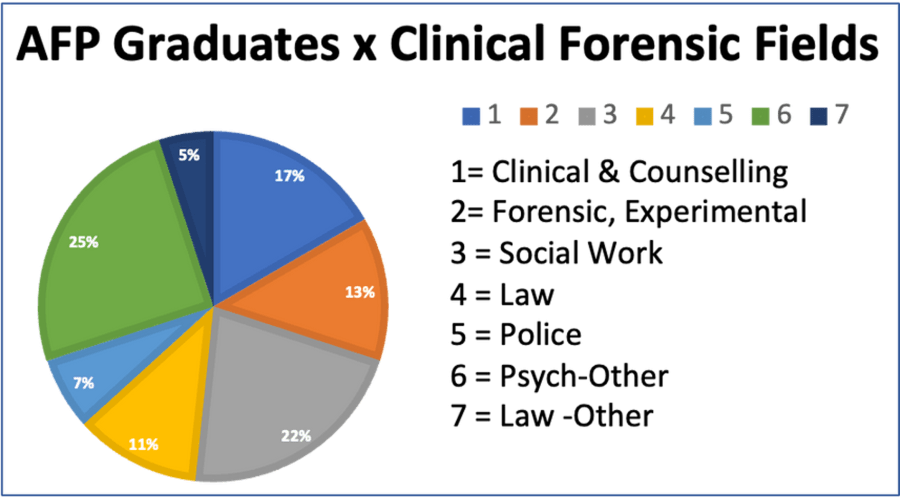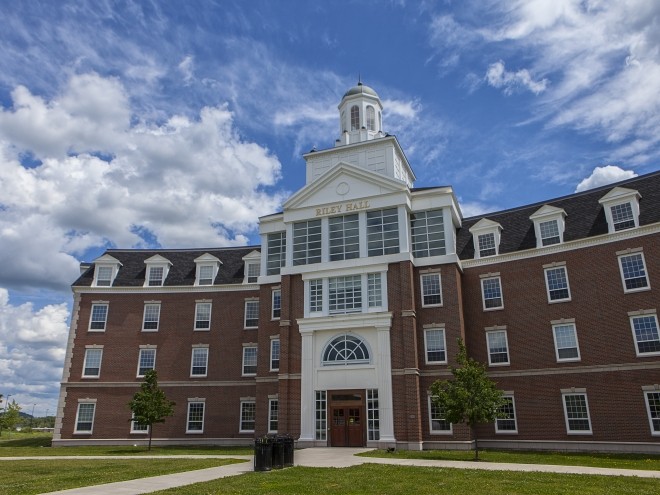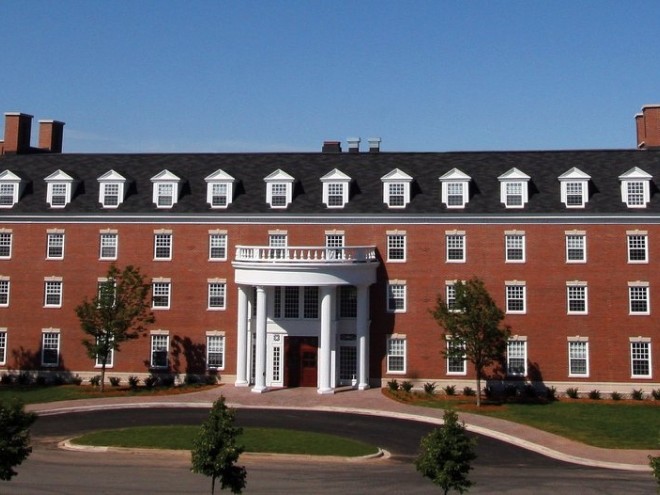Program Overview:
About Applied Forensic Psychology
As a student of Applied Forensic Psychology, you’ll learn how psychology research and practice applies to a criminal and social justice context. AFP captures the integration of clinical psychology as an applied professional discipline (mental health assessment, diagnosis, treatment, consultation) and forensic psychology as an experimental discipline.
To apply your understanding of academic concepts and theories, you’ll participate in classroom-based skills training (basic counselling and interviewing skills, ethics and boundaries), field work in relevant settings (e.g., courts, correctional facilities), and practicum placements in the community.
Forensic Psychology examines topics at the interface of psychology and the law. These topics include: eyewitness testimony, jury selection, deception detection, criminal law, police stress, forensic risk assessment, criminal behaviour, and types of offenders (e.g., sexual offenders, psychopaths, murderers).
Applied Forensic Psychology (AFP) refers to the application of psychology research and practice in the criminal justice context. The term captures the integration of clinical psychology as an applied professional discipline (mental health assessment, diagnosis, treatment, consultation) and forensic psychology as an experimental discipline.
Why Study Applied Forensic Psychology At StFX?
Applied Forensic Psychology at StFX is the only undergraduate program of its kind in Canada! The program is well suited for students with an interest in careers in social, correctional, and legal fields, such as clinical or counselling psychologist, social worker, police or correctional officer, lawyer, crime analyst, victim advocate, journalist, etc. Because many of these career options require additional education beyond an undergraduate degree, the AFP program is designed to enhance students’ success for being accepted into programs that will move them toward their desired goal.
Applied Forensic Psychology will also help you become attuned to the ways in which the social, legal, and correctional systems affect one another while helping you develop the skills to navigate complex human experiences and conditions. With a degree in Applied Forensic Psychology you’ll not only understand how these systems work, but you’ll be equipped to contribute to their workings in a meaningful and positive way.
First Year at a Glance
You’ll start by learning about major concepts, theoretical perspectives, historical trends, and empirical findings in psychology in order to discuss how psychological principles and methods apply to cognitive and behavioural problems. You will explore the intersection of biological, psychological, social, cultural, and environmental factors on criminal and psychopathology. These introductory courses lay the foundation for your professional skills training, practicum and upper-level courses.
Future Opportunities
A degree in Applied Forensic Psychology prepares you to work effectively with a broad range of people. The program is ideal for students with an interest in careers in social, correctional, and legal fields.

The following is an unexhaustive list of potential career paths for graduates of Applied Forensic Psychology:
- Correctional Officer
- Counselor
- Crime Analyst
- Interventionist
- Journalist
- Law Enforcement Officer
- Lawyer
- Psychologist
- Social Worker
- Victim Advocate



